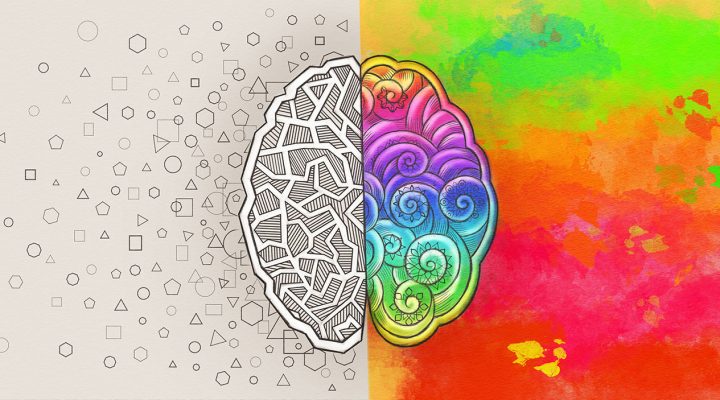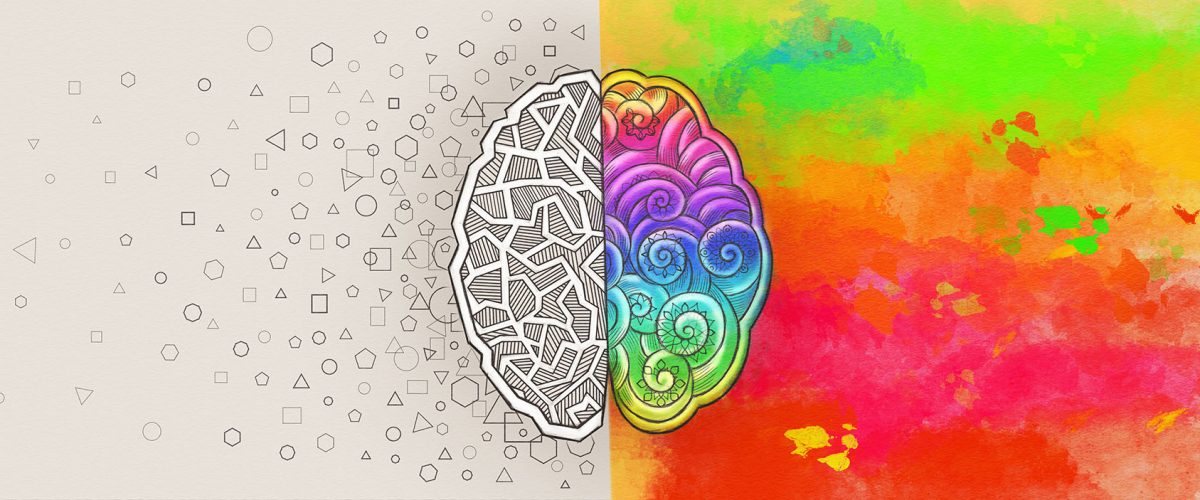It has become commonplace to speak of fundamentalists of the left and fundamentalists of the right. On my Facebook feed, I frequently see posts claiming only Christians will escape the lake of fire. Scroll down a bit and one of my more liberal friends is discounting religion in all its forms as a tragic throwback to the Dark Ages.
My wife wonders why I bother engaging with such people. It’s not as if hearts and minds will change.

Alan Bean
Wise people may be abandoning social media, but I am sticking around, at least for a while. Most posts are trivial, misinformed or just plain weird. But I have a few friends who pass along some first-rate stuff.
The other day, for instance, a friend who lives in Norway posted an article about the British psychiatrist and neurologist Iain McGilchrist, author of the 608-page The Master and His Emissary: The Divided Brain and the Making of the Western World and 1,500-page The Matter with Things: Our Brains, Our Delusions, and the Unmaking of the World.
After watching a couple of videos, I was intrigued. I just finished The Master and His Emissary and plan to download his more recent book on Kindle. McGilchrist’s startling conclusions were shaped by patients who have sustained damage to either the right or left hemisphere of the brain and studies in which the functioning of one hemisphere has been temporarily inhibited.
No matter what you’re doing or thinking, he says, both hemispheres of the brain are fully engaged, but they attend to the world in very different ways and often don’t play well together.
The brain is divided because mammals must do two things simultaneously: find something to eat while ensuring they aren’t eaten themselves.
“The brain is divided because mammals must do two things simultaneously: find something to eat while ensuring they aren’t eaten themselves.”
The left hemisphere is designed to grasp and utilize weapons and tools to achieve concrete and immediate results. The right hemisphere attends to the big picture, entertaining a wide variety of often conflicting perceptions, ideas and possibilities. The left hemisphere, by contrast, having no direct access to the phenomenological world, gets all its information from the right hemisphere.
In simple terms, the left hemisphere sorts the information into simple categories. It supplies the words and logical processes necessary for formulating a clear idea or theory.
“The left hemisphere builds up a picture of reality by a linear and logical process, McGilchrist explains, “piece by piece, brick on brick. One thing is established as apparently certain. That forms a platform for adding the next little bit of apparent certainty.”
The left hemisphere strives for certainty and deals in rigid, black-and-white categories.

Iain McGilchrist
“Speech is possible from the right hemisphere,” McGilchrist observes, “but it is usually very limited.” Although “thought probably originates in the right hemisphere,” the left hemisphere “has most syntax, and most of the lexicon which makes it very much the controller of the world in general. Coupled with its preference for classification, analysis and sequential thinking, this makes it very powerful in constructing an argument.”
Having settled on a particular understanding of the way the world works, the left hemisphere becomes resistant to alternative possibilities. The brain functions most effectively, therefore, when the left hemisphere sends its conclusions back to the right brain so left hemisphere conclusions can be incorporated into a balanced worldview.
McGilchrist believes the right hemisphere has much more awareness of the left hemisphere than the left hemisphere has of the right. It is all too easy, therefore, for the left hemisphere to view its ideas as settled truth.
Human consciousness is a constant conversation between the brain’s left and right hemispheres, but McGilchrist says we are tempted to prefer the black-or-white, either-or categories of the left brain.
This is dangerous, he believes, because the left brain sees what it expects to see and forces the world into its rigid categories.
“The left brain sees what it expects to see and forces the world into its rigid categories.”
“What the right hemisphere knows is too complex,” McGilchrist says. It lacks the ability to carve reality up into bite-sized pieces that can be neatly arranged in logical sequence. As a consequence, the right hemisphere is easily left out of the mental conversation.
Although the left hemisphere of the brain is very good at what it does, it can’t do everything. Patients with malfunctioning right hemispheres have a hard time recognizing human faces and are mystified by metaphor and the products of poetic imagination.
According to McGilchrist, the right hemisphere experiences the world in relation to other selves. It is the center of human empathy and intuitively senses its place in the interconnectedness of life. In fact, the right hemisphere can’t really tell where it ends and the outside world begins. Everything is connected to everything else.

By contrast, the left hemisphere, having no contact with the world outside itself, is radically self-referential. The needs and aspirations of other selves do not concern it. Ultimately, the left hemisphere is motivated by power.
The right hemisphere is the seat of human emotions such as love (in all its many-splendored variety), fear, longing and deep pathos. The right hemisphere feels and processes its own pain and the pain of those with whom it is in relationship. It is capable of I-thou relationship.
Because it is aware of a bewildering range of possible outcomes, many of them tragic, the right hemisphere is grounded in harsh reality. The left hemisphere, by contrast, tends to be upbeat and confident because it never doubts the rightness of its ideas. Thus, it is incurably optimistic; always winning. The left hemisphere understands only I-it relationships. Anger is its only emotion.
McGilchrist isn’t saying the right hemisphere is good while the left hemisphere is bad. Neither aspect of the brain’s functioning is sufficient or self-reliant. His point is that the right hemisphere is “ontologically prior,” that it is more in touch with reality than the left hemisphere and is therefore wiser, more insightful and more empathetic. The left hemisphere works wonders, but only when it is fully engaged with the right hemisphere. But because the two hemispheres apprehend the world in such radically different ways, the left hemisphere is tempted to go it alone. That’s when things fall apart.
“The left hemisphere is tempted to go it alone. That’s when things fall apart.”
“The hemispheres need to cooperate,” McGilchrist says, “but I believe they are in fact involved in a sort of power struggle, and that this explains many aspects of contemporary Western culture.”
McGilchrist argues the epochs of human culture and history are characterized by either a healthy balance between the brain’s two hemispheres or are dominated by the left hemisphere. Eras in which art, poetry and imagination were prized, such as the Renaissance or the Romantic period, are rated favorably.
But McGilchrist repeatedly decries the authoritarian cast of Platonic philosophy with its suspicion of the phenomenological world and its denigration of sense experience. Plato, in true left hemisphere fashion, banished poets from his Republic.
Significantly, McGilchrist views the Protestant Reformation (primarily because of its love of theological formulation and its suspicion of metaphor, ritual, symbolism and the life of the imagination) with the Enlightenment (with its excessive rationalism and corresponding and disinterest in the life of the spirit), and the French Revolution (due to its self-destructive hostility to the symbols of inherited culture) as periods of left hemisphere tyranny. Modernism (with its determination to control nature by unlocking its secrets) and postmodernism (with its insistence that the world of sense experience is merely a human construct) also receive harsh treatment.
Although he was raised in a Christian home and is conversant with Christian theology, McGilchrist has no religious affiliation. He believes God both inhabits and transcends all things. And although an outspoken critic of religious exclusivism, he regards the spiritual quest as precious and critically important.
His theology is essentially apophatic; that is, he begins with what God is not. McGilchrist’s God is both undeniable and inscrutable. We must speak of God, he says, even though most of what we say is probably well off the mark.
Because we have embarked on the same spiritual quest, people of faith should affirm and learn from one another. What we share in common, he suggests, is more valuable than what divides us.
Conservative Christians like Rod Dreher are thrilled with McGilchrist’s work, in part because he says nice things about traditional religion. McGilchrist is conservative in the sense that he values human traditions, ceremonies, rituals, architecture, art and statuary and considers many past epochs superior to our own. One consequence of the model he champions “is that we might have to revise the superior assumption that we understand the world better than our ancestors and adopt a more realistic view that we see it differently, and may indeed be seeing less than they did.”
McGilchrist exercises great caution when discussing things of the spirit. The idea of biblical inerrancy, for instance, would strike him as ludicrous. The Bible communicates primarily through the right hemisphere language of myth and metaphor. Because they are in thrall to a left hemisphere ideology, fundamentalists of the right and left reduce biblical poetry to dogmatic formulation. The notion of biblical inerrancy is the apotheosis of left hemisphere captivity.
“The right hemisphere doesn’t do certainty; it rejoices with those who rejoice and weeps with those who weep.”
But the rightness or wrongness of particular bits of dogma isn’t the primary issue. Believe what you will, McGilchrist tells us, but realize that certainty is the province of the left hemisphere. The right hemisphere doesn’t do certainty; it rejoices with those who rejoice and weeps with those who weep.
McGilchrist sees the great religious traditions of the world as a precious legacy. But when people of faith claim that, because they are right, everyone else must be wrong, they have fallen captive to the tyranny of the left hemisphere.
Religion isn’t about being “right.” Christians, for instance, fall in love with the love of Jesus and live accordingly. The Jesus story moves us deeply. But can we prove it is true? Should we try? When the right hemisphere is fully engaged, proof melts into wonder.
Jesus spoke the language of poetry, parable and paradox. His call to enemy love, radical compassion and unqualified forgiveness sounds like nonsense to those who have silenced the merciful complexity of the right hemisphere. A left hemisphere religion will always be baffled by a right hemisphere gospel. We cannot love our neighbors if we refuse to hear them.
Watch a documentary about McGilchrist here.
Alan Bean serves as executive director of Friends of Justice. He is a member of Broadway Baptist Church in Fort Worth, Texas.
Related articles:
A doorway to the sacred: Encountering God in the theater | Opinion by Stephanie Lape
Isn’t there a third way through our disagreements? | Opinion by Mark Wingfield


